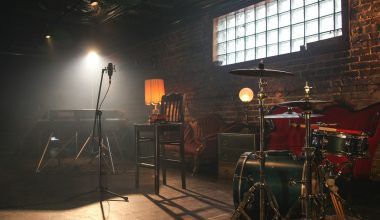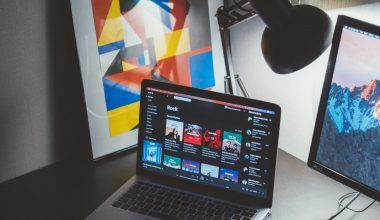Sound plays an essential role in our daily lives, from enjoying music and movies to gaming and communication. For many, achieving the best sound quality is about more than just clarity—it’s about experiencing audio the way it was meant to be heard.
Whether you’re an audiophile, a casual listener, or a professional, this guide explores everything you need to know about attaining exceptional sound quality. From choosing the right equipment to optimizing your listening environment, we’ll cover it all.
Why Is Sound Quality Important?
Sound quality influences how we perceive music, movies, and even conversations. Here’s why it matters:
- Enhanced Experience: High-quality sound brings out the richness and detail in music and movies.
- Comfort: Poor sound quality can be tiring and uncomfortable to listen to.
- Accuracy: For professionals, precise audio reproduction is essential for mixing, editing, or performing.
The quest for the best sound quality ensures a more enjoyable and immersive experience.
Factors That Affect Sound Quality
To achieve the best sound quality, it’s crucial to understand the factors that influence it:
1. Audio Source
The quality of the source material (e.g., music file, CD, or streaming service) significantly impacts sound. Lossless formats like FLAC or WAV deliver better sound than MP3.
2. Audio Equipment
Speakers, headphones, amplifiers, and DACs (Digital-to-Analog Converters) play a major role in audio fidelity.
3. Environment
Room acoustics, noise levels, and speaker placement affect how sound is perceived.
4. Connectivity
Wired connections generally offer better sound quality than Bluetooth, though modern Bluetooth codecs like aptX HD are closing the gap.
By addressing these factors, you can elevate your listening experience.
Choosing the Right Audio Equipment for the Best Sound Quality
1. Speakers
Speakers are a cornerstone of high-quality sound. Here’s what to look for:
- Type: Bookshelf, floor-standing, or studio monitors.
- Frequency Response: A wider range captures more details.
- Power: Ensure compatibility with your amplifier or receiver.
Top brands for speakers include Klipsch, KEF, and Bowers & Wilkins.
2. Headphones
For personal listening, headphones are an excellent choice. Consider:
- Over-Ear: Best for immersive sound.
- In-Ear: Portable and convenient.
- Open-Back vs. Closed-Back: Open-back headphones provide natural sound, while closed-back models reduce external noise.
Popular models like the Sennheiser HD800 and Sony WH-1000XM5 deliver exceptional sound.
3. Amplifiers and DACs
- Amplifiers: Boost the signal for speakers or high-impedance headphones.
- DACs: Convert digital signals into analog sound with better precision.
Investing in quality amplifiers and DACs ensures the best audio performance.
Best Sound Quality for Music
1. Choose the Right Format
- Lossless Formats: FLAC, ALAC, WAV. These retain all audio data for superior quality.
- Lossy Formats: MP3, AAC. These compress files but reduce sound fidelity.
2. Streaming Services
Platforms like Tidal, Qobuz, and Amazon Music HD offer high-resolution audio for the best sound quality.
3. Vinyl Records
Vinyl is known for its warm, analog sound. Pair with a quality turntable for an authentic listening experience.
Sound Quality in Movies and Gaming
High-quality sound isn’t just for music. It enhances movies and gaming too.
1. Surround Sound Systems
- 5.1 or 7.1 Systems: Provide immersive audio for home theaters.
- Dolby Atmos: Adds height channels for 3D sound effects.
2. Gaming Headsets
For gamers, headsets with surround sound and low latency ensure clear communication and immersive effects.
Top models like SteelSeries Arctis Pro and HyperX Cloud II deliver excellent audio.
Optimizing Your Environment for the Best Sound Quality
1. Room Acoustics
- Add rugs, curtains, or acoustic panels to reduce echo.
- Position speakers away from walls to prevent distortion.
2. Speaker Placement
- Use the “equilateral triangle” method: Place speakers and the listener at equal distances.
- Tilt speakers slightly toward your ears for optimal sound.
3. Noise Reduction
Minimize background noise by closing windows or using soundproofing materials.
Tips for Achieving the Best Sound Quality
- Update Your Gear: Regularly upgrade to modern equipment for better performance.
- Maintain Equipment: Keep your gear clean and well-maintained to avoid degradation.
- Use High-Quality Cables: Poor cables can introduce noise and reduce clarity.
- Calibrate Your System: Use software or professional help to fine-tune your setup.
Conclusion:
Achieving the best sound quality is about more than just buying expensive equipment. It’s about understanding your needs, choosing the right gear, and optimizing your setup. Whether you’re a music lover, a movie buff, or a gamer, investing in sound quality transforms your experience.
With the tips and insights in this guide, you’re now equipped to enjoy audio the way it was meant to be heard. Elevate your listening and let every note shine.
Related Articles:
For further reading, explore these related articles:
- Best Recording Microphones for Singing: Find Your Perfect Mic
- Which Audio Format Is Best? Choose the Right Format for You
- Best Music Instrument: Ultimate Guide for Every Musician
For additional resources on music marketing and distribution, visit Deliver My Tune.





